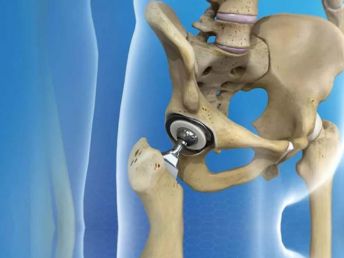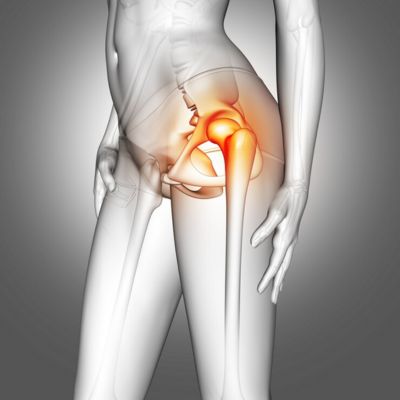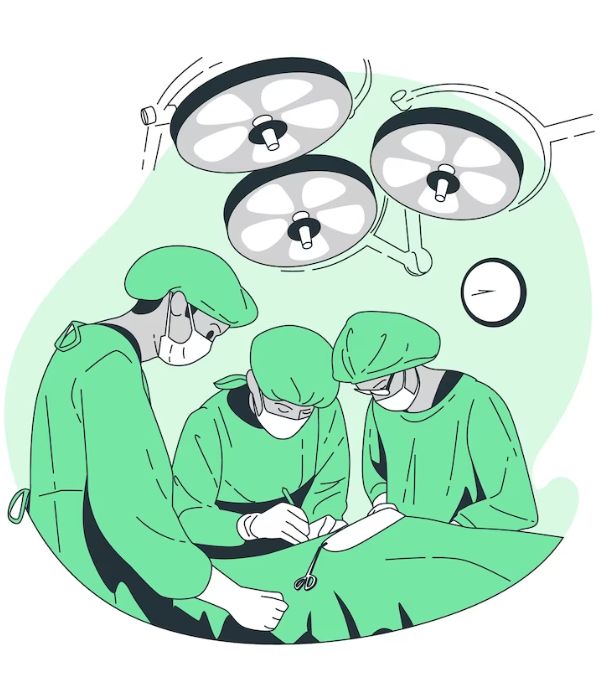Hip Replacement Surgery in Noida
Get world-class hip replacement surgery in Noida with Dr. Himanshu Gupta, a renowned and highly experienced orthopedic surgeon.
With over 15 years of expertise and 15,000 successful surgeries, Dr. Gupta offers cutting-edge treatments tailored for optimal recovery and mobility. Trust in excellence and compassionate care for your orthopedic needs.

Dr Himanshu Gupta
Best Hip Replacement Surgeon in Noida
Meet Dr. Himanshu Gupta, an award-winning surgeon for hip replacement in Noida. Specializing in hip replacement and other orthopedic surgeries, he brings a wealth of knowledge and skill to every procedure.
15+ Years of Experience
Dr. Gupta’s extensive experience spans over 15 years, marked by groundbreaking techniques and a deep commitment to patient care and recovery.
15K+ Successful Surgeries
With a remarkable record of over 15,000 successful surgeries, Dr. Gupta’s expertise in hip replacement surgery and orthopedics ensures high-quality care for every patient.

What is Hip Replacement Surgery?
Hip replacement surgery, also known as hip arthroplasty, is a medical procedure in which a damaged or worn-out hip joint is replaced with an artificial joint or implant. This surgery is generally recommended for individuals who suffer from hip pain and mobility issues due to conditions like osteoarthritis, rheumatoid arthritis, osteonecrosis, or hip fractures.
The primary reason for hip replacement surgery is to relieve pain that can’t be controlled by other treatments. It’s considered when the hip joint is worn or damaged to the extent that your mobility is reduced and you experience pain even while resting.

Types of Hip Replacement Surgeries
Total Hip Replacement (THR)
This is the most common type. It involves replacing both the ball (femoral head) and socket (acetabulum) of the hip joint with artificial components.
Partial Hip Replacement (Hemiarthroplasty)
In this procedure, only the damaged femoral head is replaced with a prosthetic implant. It is often used for hip fractures, especially in older adults.
Minimally Invasive Hip Replacement
This technique uses smaller incisions and specialized instruments to access the hip joint. It may result in less pain and a faster recovery.
Bilateral Hip Replacement
Some individuals require replacement of both hip joints, which can be done either simultaneously or in separate surgeries.
Revision Hip Replacement
This surgery is performed when a previous hip replacement has failed or worn out. It involves removing the old implant and replacing it with a new one.
Hip Resurfacing
This procedure involves capping the damaged ball of the hip joint with a metal prosthesis, preserving more of the patient’s bone. It’s used in select cases.
Custom Hip Replacement
In this approach, the implants are customized based on the patient’s anatomy, providing a more tailored fit.
Bipolar Hip Replacement
A bipolar prosthesis has two components that move independently. It’s often used for elderly patients with hip fractures.
Anterior Hip Replacement
This technique accesses the hip joint from the front, potentially causing less muscle damage and a quicker recovery.
Don't Wait! Your Hip Issues Won't.
Book an appoitment now with the best hip replacement surgeon in Noida!
Why Choose Us for Hip Replacement in Noida?
Expertise and Specialization
Dr. Gupta specializes in hip replacement, bringing a wealth of knowledge and skill. His focus on orthopedic advancements ensures patients receive the most current and effective treatments.
Advanced Surgical Techniques
Using the latest surgical techniques, including minimally invasive procedures, Dr. Gupta ensures precision, reduced recovery time, and minimal discomfort for his patients.
Personalized Care Approach
Every patient is unique, and so is their treatment. We provide personalized care plans, meticulously tailored to meet individual health needs and recovery goals.
Comprehensive Patient Education
Dr. Gupta believes in empowering patients with knowledge. He provides comprehensive education about the procedure, recovery, and lifestyle adjustments, ensuring informed decision-making.
State-of-the-Art Facility
Patients are treated in a state-of-the-art facility equipped with advanced medical technology, ensuring safety, comfort, and the highest standards of care.
Proven Track Record of Success
With over 15,000 surgeries, Dr. Gupta is the best doctor for hip replacement in Noida. His expertise and consistent results have earned him a reputation for excellence in orthopedics.
Ongoing Support and Aftercare
Post-surgery care is crucial. Along with partial and total hip replacement surgery in Noida, we offer ongoing support and aftercare, ensuring a smooth and speedy recovery.
100% Patient Satisfaction
The trust and satisfaction of the patients are important. Testimonials from previous patients reflect Dr. Gupta's commitment to exceptional care and successful outcomes.

Total Hip Replacement Surgery in Noida
Dr. Himanshu Gupta’s orthopedic practice is a beacon of hope for those suffering from severe hip joint pain and mobility issues. Specializing in full hip replacement surgery in Noida, Dr. Gupta offers a solution that brings together advanced surgical techniques, personalized patient care, and a commitment to exceptional results.
Dr. Gupta’s approach to total hip replacement is rooted in a deep understanding of the complexities of the hip joint and the challenges faced by individuals with hip conditions. By utilizing state-of-the-art technology and materials, he ensures that each surgery is tailored to the patient’s specific anatomy and lifestyle needs, aiming for outcomes that not only relieve pain but also restore mobility and improve overall quality of life.
Patients opting for total hip replacement surgery in Noida get a thorough pre-surgical consultation, a detailed explanation of the procedure, and a comprehensive aftercare plan. The goal is not just to perform a successful surgery, but to begin a journey towards long-term health and mobility.
Located in Noida, the facility is easily accessible and designed to provide a comfortable and reassuring experience for patients. From the initial consultation to the final steps of recovery, Dr. Gupta and his team are dedicated to providing a seamless, caring, and supportive environment.
Choosing Dr. Gupta for full hip replacement surgery in Noida means entrusting your health to one of the leading orthopedic surgeons in the region, known for his skill, compassionate care, and dedication to bringing about life-changing results for his patients.
Best Hip Replacement Doctor in Noida
Get treated by the best hip replacement surgeon in Noida. Dr. Himanshu Gupta’s approach combines the latest surgical techniques with personalized care, ensuring each patient receives a treatment plan that is best suited to their individual needs. His state-of-the-art facility is equipped with advanced technology, enabling precision and efficiency in every procedure.
What truly sets Dr. Gupta apart is his commitment to incorporating innovative methods and materials that enhance recovery and improve long-term outcomes. His practice is at the forefront of adopting minimally invasive procedures, leading to less pain and quicker recovery times for patients.
Beyond surgical expertise, Dr. Gupta and his team are dedicated to providing a supportive and informative environment. From the initial consultation to post-operative care, patients are guided with comprehensive advice, compassionate support, and continuous monitoring of their recovery progress.
Choosing Dr. Gupta for total hip replacement surgery in Noida means entrusting your health to one of the most skilled and caring orthopedic teams.

Get Back to Active Lifestyle with Hip Surgery!
Book an appoitment now with the best hip replacement surgeon in Noida!
Benefits of Hip Replacement Surgery
Pain Relief
Hip replacement surgery significantly reduces or eliminates hip joint pain. Patients experience a dramatic improvement in pain levels, enhancing their daily comfort and quality of life.
Improved Mobility
Post-surgery, patients typically see a notable increase in mobility. The procedure helps in restoring the range of motion, making walking and other movements easier and more fluid.
Enhanced Joint Function
The surgery replaces the damaged joint with a prosthesis, leading to improved joint function. This means smoother and more natural hip movements.
Return to Daily Activities
Patients regain the ability to perform daily activities without discomfort. The surgery enables a return to a more active and independent lifestyle.
Reduced Risk of Hip Deformity
Hip replacement can correct deformities and alignment issues of the hip joint, preventing further deterioration and complications.
Long-Lasting Results
With modern surgical techniques and high-quality implants, hip replacements can last for many years, providing a long-term solution for hip issues.
Increased Overall Well-being
By alleviating pain and improving mobility, hip replacement surgery contributes significantly to the overall physical and mental well-being of patients.
Customized Treatment
Each hip replacement surgery is customized to the patient’s specific anatomy and health needs, ensuring optimal outcomes tailored to individual requirements.
Hip Replacement Surgery Procedure
1. Preoperative Assessment
- Initial Consultation: Meeting with the orthopedic surgeon to discuss symptoms, medical history, and suitability for surgery.
- Diagnostic Tests: Includes X-rays or MRI to assess the hip joint’s condition.
- Health Evaluation: Ensuring overall health is stable for surgery, possibly involving blood tests, ECG, and consultations with other specialists if needed.
2. Preparation for Surgery
- Pre-surgical Instructions: Guidance on medication, fasting, and other pre-op preparations.
- Anesthesia: Before the surgery, the patient is given either general anesthesia (to be asleep during the operation) or spinal/epidural anesthesia (numbing lower body).
3. The Surgical Procedure
- Incision: A cut is made over the hip to expose the joint.
- Removing Damaged Cartilage and Bone: The damaged ball (femoral head) is removed, and the hip socket (acetabulum) is prepared by removing any damaged cartilage and bone.
- Placing the New Hip Joint: A prosthetic socket is implanted into the pelvic bone, and a prosthetic ball attached to a stem is fitted into the femur.
- Closing the Incision: The incision is closed with sutures or surgical staples.
4. Postoperative Care
- Immediate Care: Post-surgery, monitoring in a recovery room, managing pain, and preventing complications like blood clots.
- Hospital Stay: Typically lasts a few days, during which mobility is gradually reintroduced.
5. Rehabilitation and Physical Therapy
- Early Mobility: Starting physical therapy as soon as possible to strengthen the hip and restore range of motion.
- Rehabilitation Program: A customized plan that includes exercises to improve flexibility, strength, and endurance.
6. Follow-up and Ongoing Care
- Postoperative Visits: Regular check-ups with the surgeon to monitor the hip’s healing and function.
- Long-term Care: Guidance on lifestyle modifications and activities to protect the new joint and ensure its longevity.
Recovery Time for Hip Replacement Surgery
The recovery time following hip replacement surgery can vary depending on several factors, including the patient’s overall health, the type of surgery performed, and their commitment to rehabilitation.
- Age and Overall Health: Younger and healthier individuals may recover faster.
- Type of Surgery: Minimally invasive techniques can lead to quicker recovery.
- Pre-surgery Fitness Level: Those with better pre-surgery fitness levels often recover faster.
- Post-surgery Rehabilitation: Adherence to rehabilitation exercises greatly influences recovery speed.
Recovery from hip replacement surgery is a gradual process, and it’s essential for patients to work closely with the hip replacement surgeon and physical therapists to achieve the best outcomes.

Who Needs a Hip Replacement?
Hip replacement surgery, also known as total hip arthroplasty, is recommended for individuals who experience significant hip pain and mobility issues, primarily due to the deterioration of the hip joint. This deterioration can be caused by various conditions. Below are the primary reasons someone might need a hip replacement:
- Osteoarthritis: This is the most common reason for hip replacement surgery. Osteoarthritis involves the wear-and-tear of the joint cartilage, which can lead to pain and stiffness in the hip.
- Rheumatoid Arthritis: Caused by an overactive immune system, rheumatoid arthritis leads to inflammation of the joint lining (synovium) and can eventually destroy cartilage and bone within the joint.
- Osteonecrosis (Avascular Necrosis): This condition occurs when blood flow to the ball portion of the hip joint is reduced or stopped, causing the bone to collapse and deform.
- Hip Fractures or Injuries: Severe hip fractures or injuries might require a hip replacement, especially in older adults where the bones might not heal properly.
- Bone Tumors: Tumors in or around the hip joint can lead to the need for a hip replacement.
- Post-traumatic Arthritis: This can develop after a serious hip injury or fracture. The resulting arthritis can damage the cartilage and lead to hip pain and stiffness over time.
- Congenital or Developmental Hip Dysplasia: If the hip joint hasn’t formed properly, it can wear out more quickly than a normal joint.
- Stiffness and Loss of Mobility: In cases where the hip joint becomes so stiff that it significantly limits everyday activities and quality of life.
FAQs About Hip Replacement Surgery in Noida
How long does a hip replacement surgery take?
The surgery itself typically takes about 1 to 2 hours. However, this time can vary depending on the complexity of the case and the surgical technique used.
Is hip replacement surgery painful?
You will not feel pain during the surgery due to anesthesia. Post-surgery, pain management is a key part of recovery, and your medical team will provide medications to help control pain as the hip heals.
How long will I stay in the hospital after hip replacement surgery?
The average hospital stay is 1 to 4 days. The length of stay depends on your individual recovery and response to physical therapy.
When can I return to normal activities after hip replacement surgery?
Recovery varies, but most people can resume everyday activities within 3 to 6 weeks post-surgery. Full recovery and return to more strenuous activities can take 6 months to a year.
What are the risks associated with hip replacement surgery?
While hip replacement is generally safe, risks include infection, blood clots, hip dislocation, and wear of the artificial joint over time. Discuss these risks with your surgeon for a better understanding.
How long do hip replacements last?
Modern hip replacements can last 15 to 20 years or more, depending on factors like the patient’s activity level, weight, and the surgery type.
Will I need physical therapy after my surgery?
Yes, physical therapy is a crucial part of the recovery process. It helps in regaining strength, flexibility, and mobility in the hip.
Can I drive after hip replacement surgery?
Patients resume driving when they can comfortably control the vehicle, usually around 4 to 6 weeks after surgery, but this should always be discussed with your hip replacement surgeon.
Are there any restrictions after hip replacement?
Initially, you’ll need to avoid certain movements to prevent dislocation of the new hip joint. Your surgeon and physical therapist will provide specific guidelines.
What is the cost of hip replacement surgery in Noida?
The cost varies depending on factors like the type of implant, and hospital charges. It’s best to consult with us for an accurate estimate.
What is the difference between full and bipolar hip replacement surgery?
In full hip replacement, both the ball and socket of the joint are replaced. In bipolar hip replacement, commonly used for specific types of fractures, only the femoral head (ball part) is replaced, and it has two parts that allow movement within the implant itself.
What are the common side effects after hip replacement surgery?
Common side effects can include pain, swelling, and stiffness in the hip area. These usually improve with time and physical therapy.
What is robotic hip replacement surgery?
Robotic hip replacement uses advanced technology to assist surgeons in planning and performing the surgery with enhanced precision. It can lead to better implant positioning and potentially better outcomes.
What activities should I avoid after hip replacement surgery?
Avoid high-impact activities, deep bending, twisting at the hip, and crossing your legs, especially in the early recovery phase. Your surgeon will provide specific guidelines.
Which type of hip replacement surgery is best?
The “best” type varies for each individual based on their anatomy, health condition, and lifestyle. Consult with Dr Himanshu Gupta (the best hip replacement surgeon in Delhi NCR) to determine the most suitable option for you.
What can I expect 3 months after hip replacement surgery?
By 3 months, most patients experience significant improvements in pain and mobility, though complete healing and recovery may take longer.
Is hip replacement surgery successful?
Yes, it is highly successful, with the majority of patients experiencing pain relief and improved joint function.
Don't Let Hip Issues Hold You Back!
Book an appoitment now with the best hip replacement surgeon in Noida!
